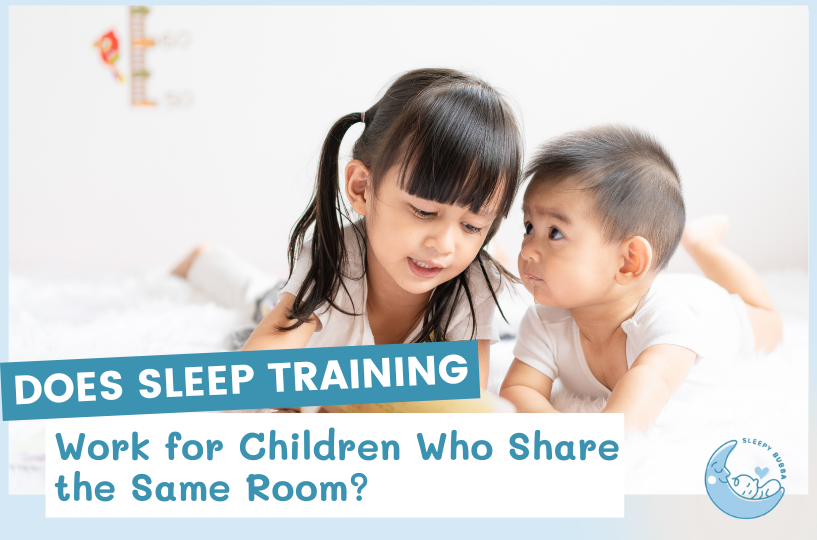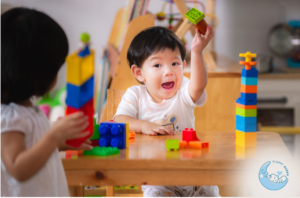Enquire Now with FREE 15 Mins Call
Does Sleep Training Work for Children Who Share the Same Room?

As a parent, one of the most challenging aspects of taking care of a baby is getting them to sleep through the night. Parents often struggle with the process of putting their babies to sleep and may not know the best methods to use. Sleep training is a popular approach that can help parents teach their children how to fall asleep on their own and stay asleep for longer periods. However, parents who have two or more children sharing the same room may worry about whether sleep training can work effectively. In this article, we will explore the effectiveness of sleep training for children who share the same room.
What is Sleep Training?
Sleep training refers to a range of techniques used to help babies learn to sleep independently. There are several methods of sleep training, including the Ferber method, the Chair method, and more. These methods differ in the amount of parental intervention, the time it takes to see results, and the level of distress experienced by the baby. Sleep training usually involves establishing a consistent sleep routine, creating a conducive sleep environment, and gradually reducing the amount of parental intervention during bedtime. The goal is to help the baby learn to fall asleep on their own and stay asleep for longer periods.
Does Sleep Training Work for Children who Share the Same Room?
One of the biggest concerns that parents have about sleep training is whether it can work for children who share the same room. Parents often worry that sleep training may disturb the sleep of the other child, leading to a cascade of sleep disturbances and crankiness for both kids. The good news is that sleep training can work for children who share the same room. While it may require some additional effort and planning, it is possible to train both children to sleep through the night. Here are some tips for successful sleep training when children share the same room:
1. Create a Consistent Sleep Environment
Creating a consistent sleep environment is key to successful sleep training. This involves setting up a sleep-conducive environment that encourages restful sleep. By creating a consistent sleep environment, the children will be more likely to fall asleep and stay asleep. Some tips for creating a conducive sleep environment include:
– Dimming the lights in the room to signal to the children that it’s time to sleep.
– Playing soft, soothing music or white noise to drown out any noise that may disturb the children’s sleep.
– Keeping the temperature in the room cool and comfortable for the children.
2. Establish a Consistent Sleep Routine
Establishing a consistent sleep routine is also crucial to successful sleep training. This involves creating a routine that signals to the children that it’s time to sleep. By establishing a consistent sleep routine, the children will learn to associate certain activities with sleep and will be more likely to fall asleep on their own. Some tips for establishing a consistent sleep routine include:
– Having a consistent bedtime and wake-up time for both children.
– Following a predictable pattern of activities before bedtime, such as bathing, reading, and singing.
– Avoid stimulating activities such as screen time before bedtime.
3. Separate the Children’s Sleeping Areas
Separating the children’s sleeping areas can help reduce disturbances during sleep training. This may involve moving one child to another room temporarily, using a divider to create separate sleeping areas in the same room or even using earplugs or noise-canceling headphones for the child who is not being sleep-trained.
4. Consider Hiring a Baby Sleep Consultant
If you are struggling with sleep training or have concerns about whether it can work for your children who share the same room, consider looking for baby sleep consultations. A baby sleep consultant can provide personalized advice and support to teach you how to sleep train baby. By working with a baby sleep consultant, you can feel more confident and empowered in your ability to help your children sleep better.
5. Be Prepared for Some Disruption
It’s important to remember that sleep training may cause some temporary disruptions, especially when children are sharing the same room. Children may wake up and cry more frequently during the initial stages of sleep training, which can be difficult for parents to manage. However, with consistency and patience, most children will adjust to the new sleep routine and learn to sleep independently. It’s important to stay committed to the sleep training process and to avoid giving up too soon.
6. Be Mindful of Your Children’s Needs

Finally, it’s important to be mindful of your children’s individual needs during the sleep training process. While sleep training can be effective for most children, it may not work for all children or may need to be adapted to meet their unique needs. For example, some children may have medical conditions that affect their sleep, such as sleep apnea or reflux, which may require medical intervention. It’s important to consult with your pediatrician if you have concerns about your children’s sleep.
Conclusion
In summary, sleep training can be effective for children who share the same room, but it requires some additional planning and effort. By following the tips outlined in this article and seeking help from a baby sleep consultant if necessary, you can help your children learn to sleep independently and enjoy more restful nights. Don’t give up if sleep training doesn’t work immediately – with consistency and patience, most children will learn to sleep better in time.
If you are looking for a reliable baby sleep consultant based in Singapore, consider Sleepy Bubba. Sleepy Bubba offers a range of sleep consultation services, including personalized sleep plans, text or phone call support, and 1-1 consultation to help parents navigate the sleep training process with confidence. Schedule a FREE 20-minute discovery call with us now to learn more about our services. With Sleepy Bubba’s guidance and support, you can help your children learn to sleep better and enjoy more restful nights.







